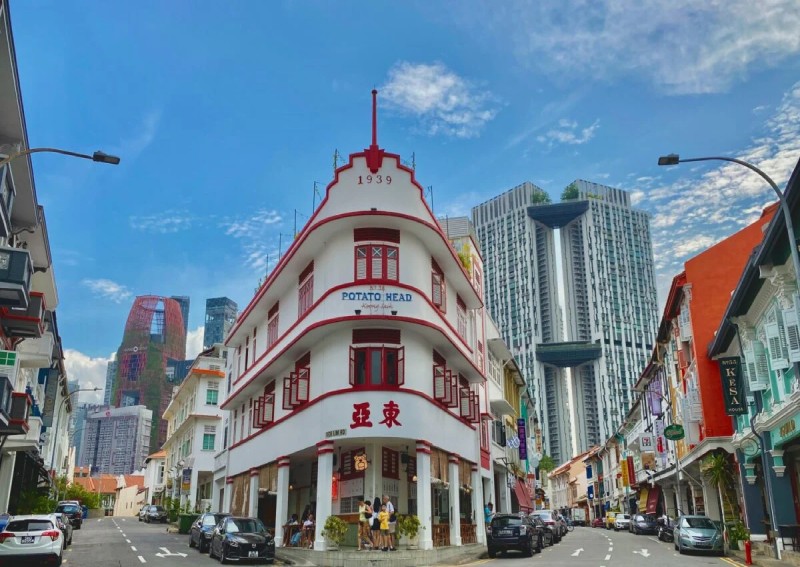Navigating the commercial property market in Singapore: A comprehensive guide

In the dynamic landscape of Singapore's property market, commercial real estate presents a unique opportunity.
This guide delves into the intracacies of the commercial property market, especially following the increase in Additional Buyer's Stamp Duty (ABSD) rates for residential properties as part of the September 2022 property cooling measures.
Here, we explore why and how investors might pivot towards commercial properties in 2023 and beyond.
Commercial properties in Singapore, which include retail spaces, industrial and commercial buildings, and hotels, serve primarily for business operations and income generation.
These properties are increasingly attractive to investors, businesspeople, and foreign buyers, particularly because they are exempt from ABSD, a levy applicable to residential properties.
Below is a table to show the distinctions between the types of commercial properties and what are the examples for them:
| Type of commercial property | Examples |
| Commercial and industrial | Offices and warehouses (B1), factories (B2) |
| Retail | HDB shophouses, bars, restaurants, gyms, pet shops, shopping malls, shophouses |
| Hotel | Hotels, hostels |
Singapore's legal framework permits foreign investors to own commercial properties without the restrictions faced in the residential sector.
This openness creates a vibrant and inclusive market, appealing to international investors looking to tap into Singapore's commercial real estate sector.
In reference to the Residential Property Act, the commercial properties that foreigners can buy are:
Investing in commercial property requires careful analysis. Various types of commercial properties come with unique risks and benefits. Investors should also consider the property's zoning and potential for change in usage, as well as the significance of its location.
Financial aspects like ABSD, Seller's Stamp Duty (SSD), and the inapplicability of CPF funds for commercial property purchases further influence investment decisions. Explore our very own Stamp Duty Calculator before you proceed with the article!
You can take a look at the table below to see if you need to pay Seller's Stamp Duty (SSD):
| Holding period | SSD rate (on actual price) |
| One year | 15 per cent |
| One to two years | 10 per cent |
| Two to three years | Five per cent |
| More than three | No payable rate |
Numbers according to IRAS
The financial landscape for acquiring commercial property in Singapore involves understanding loan-to-value ratios, the absence of ABSD, and the presence of SSD for certain types of properties.
Additional costs, including property tax, Buyer's Stamp Duty (BSD), and Goods and Services Tax (GST), as well as renovation and furnishing costs, play a crucial role in investment planning.
Buyer's Stamp Duty payment rates can be seen in the table below:
| Rates for residential properties | Rates for non-residential properties | |
| First $180,000 | One per cent | One per cent |
| Next $180,000 | Two per cent | Two per cent |
| Next $640,000 | Three per cent | Three per cent |
| Next $500,000 | Four per cent | Four per cent |
| Next $1.5 million | Five per cent | Five per cent |
| In excess of $3 million | Five per cent | Five per cent |
Numbers according to IRAS
Commercial properties often come with different lease terms compared to residential properties, typically shorter. They are known to offer higher rental yields, though they may also incur higher maintenance costs, a factor to be considered by prospective investors. Check out our Affordability Calculator!
Commercial property financing can be navigated through individual or corporate loans, with banks applying the Total Debt Servicing Ratio (TDSR) to assess loan eligibility. This varies between individual investors and companies, based on income and financial health.
We also have a TDSR Calculator!
Prospective investors can stay informed about upcoming commercial property sales through Government Land Sales (GLS) announcements. Researching market trends, including rental rates and vacancy statistics, is essential for informed investment decisions.
Navigating commercial property loans can be complex. Consulting with mortgage experts and financial advisors is recommended for personalised guidance tailored to individual investment profiles and goals.

The commercial property market in Singapore offers promising opportunities for investors in 2023 and beyond. However, success in this venture requires thorough research, careful financial planning, and an understanding of the market dynamics.
ALSO READ: Government Land Sales H1 2024: Prime residential sites for development opportunities